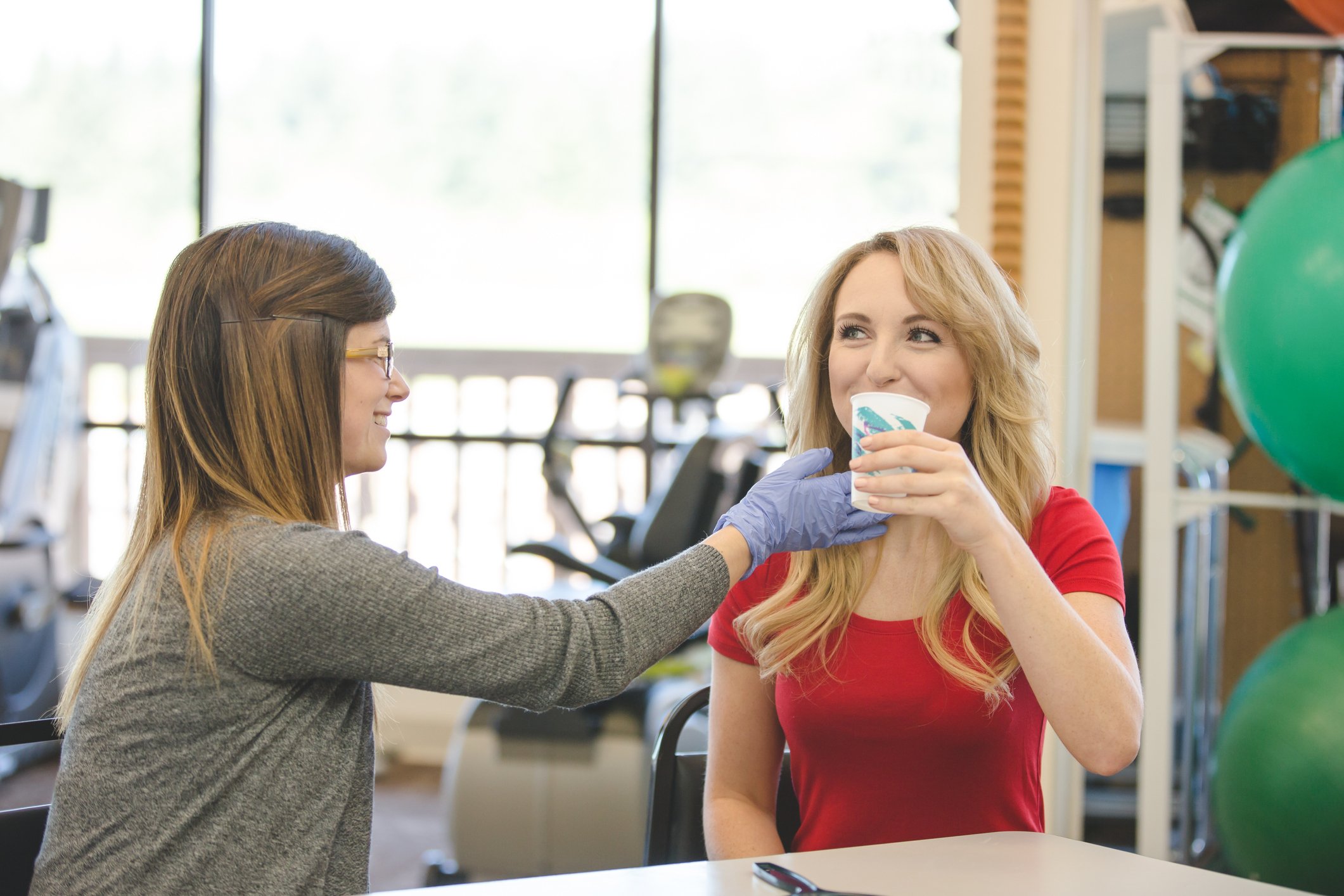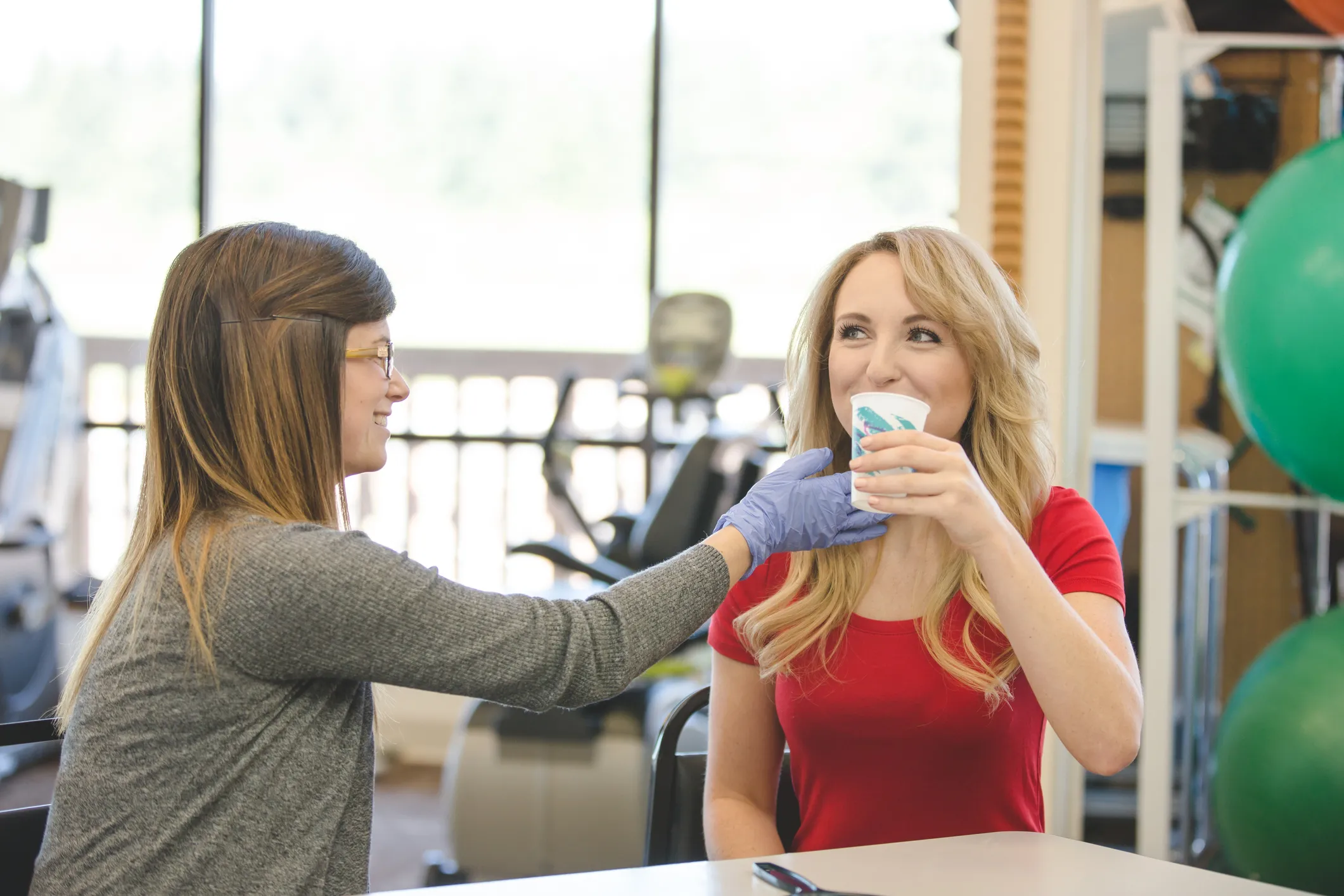Speech Therapy Can Improve Concussion Recovery
Exercising the brain after a concussion
After a concussion physicians typically prescribe physical and mental rest, but exercising the brain the right way may be just what the doctor ordered.

A concussion, or mild traumatic brain injury, can result from an accident, fall or injury during which one suffers a blow to the head. The jarring of the brain caused by this sudden movement can result in long-term effects. The Centers for Disease Control and Prevention estimates that up to 3.8 million people will experience a concussion annually in the United States, but many more may go unreported.
Though the prominence of concussions in professional sports has helped new details about the severity of concussions to rise into the limelight, the focus is often only on the initial symptoms which can include dizziness, headaches and nausea. Concussion impacts, however, can be unique to each circumstance.
There are several ways they can impact daily life, including:
- Memory loss
- Sensitivity to overstimulation, light or sound
- Loss of visual and auditory attention
- Mood changes
- Reduced analytic skills
- Slurred speech
- Fatigue
Many people don’t know that post-concussion therapy exists for anyone impacted, not just sports stars. A speech pathologist with a Clinical Brain Injury Specialist Certification helps patients recover the brain’s endurance and memory, increase focus and possibly even improve mood. I’ve worked with patients who have experienced a concussion from an everyday mishap or fall, after a motor vehicle accident and even former military members who have received multiple concussions during training or combat.
Retraining the brain can give hope to many concussion patients. To help patients reduce their brain “fog” and increase their recall and stamina, I work with the patient and his or her loved ones to evaluate and narrow down the difficulties they are facing. Together, we formulate a treatment plan that will help the patient both adapt and overcome these concerns. This action plan can include: a personal plan for controlling one’s environment to reduce overstimulation and compensate for deficits, realistic goal setting, exercises to improve cognitive endurance, family education and assistance with transitioning back to work or school.
If you have experienced a concussion or believe you suffer from the long-term effects of a past concussion, it’s important to seek help. Talk with your physician about your advanced therapy options.

Celeste B. Luna M.S., CCC-SLP, CBIS, is a speech-language pathologist who practices with Chesapeake Regional Medical Center’s Rehabilitation Services Department. She is a Clinical Brain Injury Specialist whose specialty is treating patients with mild to severe brain trauma.